OPCW, its teams serve as tools in hands of states hostile to Syria: UN envoy
Syria says the Organization for the Prohibition of Chemical Weapons (OPCW) and its investigation teams have become tools in the hands of countries hostile to the Damascus government, and that reports compiled by the organization lack credibility.
Speaking at a virtual UN Security Council session on Tuesday, Syria’s Deputy Foreign Minister and Permanent Representative to the United Nations Bashar al-Ja’afari said OPCW teams have frequently prepared reports without visiting sites and inspecting realities on the ground, and thus such accounts fail to meet the minimum standards of credibility, professionalism and objectivity.
“The reports rely on speculations and proposals, which themselves count on so-called local sources as well as allegations, fabrications and false testimonies of terrorist groups and [the so-called civil defense group] White Helmets,” Ja’afari said.
He condemned actions intended to force the OPCW to adopt a draft decision submitted last November by France to the organization’s secretariat, which falsely alleges Syria is non-compliant with the Chemical Weapons Convention.
The Syrian diplomat denounced the resolutions against Syria as a politicized move intended to incriminate the Damascus government and acquit terrorists and their sponsors of their crimes.
“Syria condemns the use of chemical weapons and other weapons of mass destruction at any time or in any place, by anyone or under any circumstance,” Ja’afari highlighted.
He recalled that the first chemical attack by anti-Damascus terrorist groups took place on March 19, 2013, when Takfiris launched a shell laced with toxic fumes at the town of Khan al-Assal, west of the city of Aleppo, killing 25 people, including 16 army soldiers, and wounding many more.
Ja’afari pointed to striking examples of egregious irregularities in the investigations of chemical attacks in Khan Shaykhun in April 2017 and Douma in April 2018, stressing that Damascus has been unjustly accused despite the fact that its chemical program is completely closed and its chemical weapons stockpiles and production facilities have been destroyed.
Syria surrendered its entire chemical stockpile in 2013 to a mission led by the United Nations and the OPCW.
On April 7, 2018, an alleged chemical attack was reported near the Syrian city of Douma near the capital Damascus. Western countries were quick to blame it on the government of President Bashar al-Assad.
A week later, the US, Britain and France launched a coordinated missile attack against sites and research facilities near Damascus and Homs with the purported goal of paralyzing the Syrian government’s capability to produce chemicals.
Damascus, however, said that no chemical attack had happened and that the Douma incident had been staged by foreign intelligence agencies to pressure the government in the face of army advances against foreign-backed terrorists.
It also specifically pointed to the role of the White Helmets, a group which claims to be a humanitarian NGO but has long been accused of working with anti-Damascus militants and staging false-flag gas attacks.
Iran’s 14th AFC futsal title after thrilling penalty shootout reinforces its Asian dominance
How Iranians made ice thousands of years before Europe
While fully prepared, Iran not after initiating regional war: Top general
Israeli ban plunges Gaza critical lifeline into risk: MSF
Iran pursues diplomacy while standing ready for war: FM Araghchi
Somalia president vows to prevent any Israeli military base in Somaliland
Pezeshkian: Iran’s nuclear logic rooted in rights enshrined in NPT
VIDEO | Mexican anti-Trump protesters rally against US intervention in Latin America


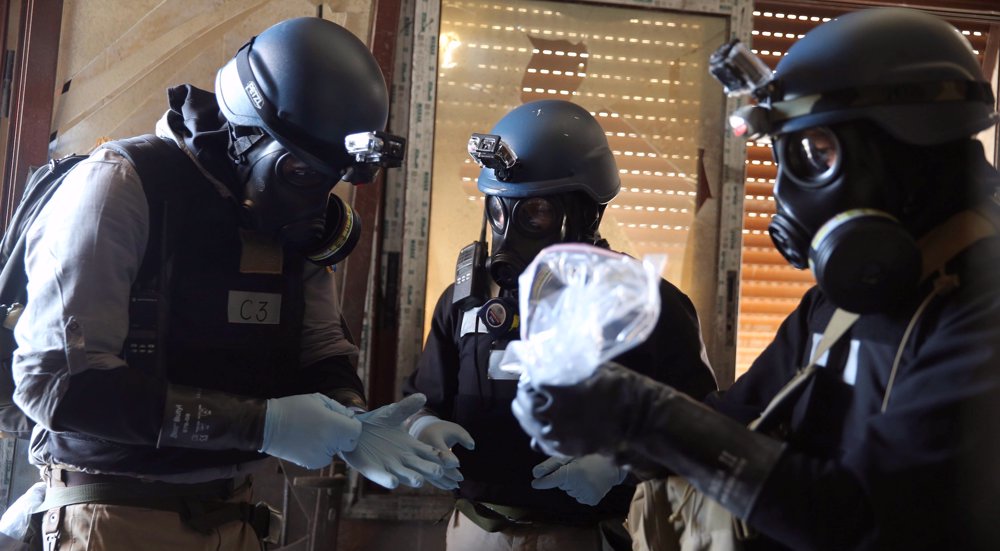



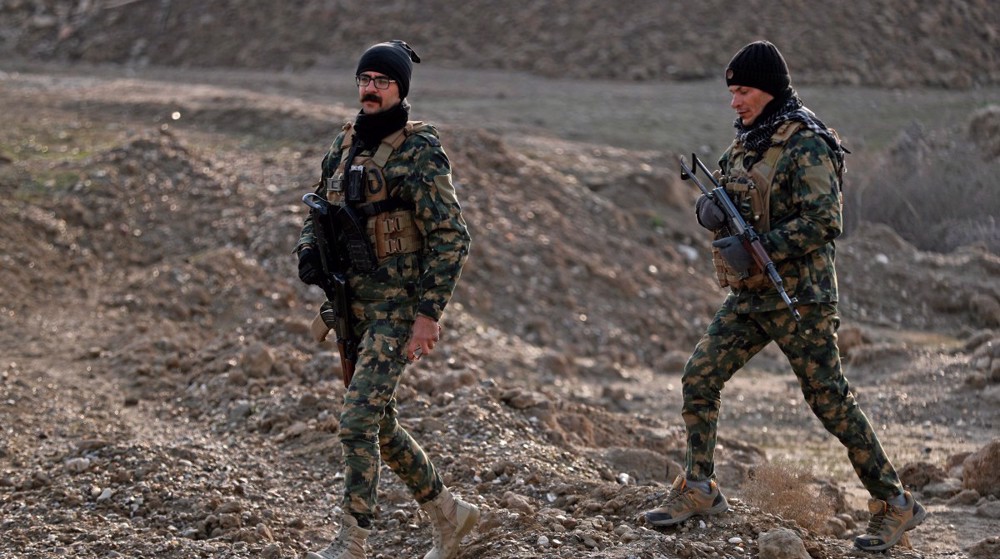
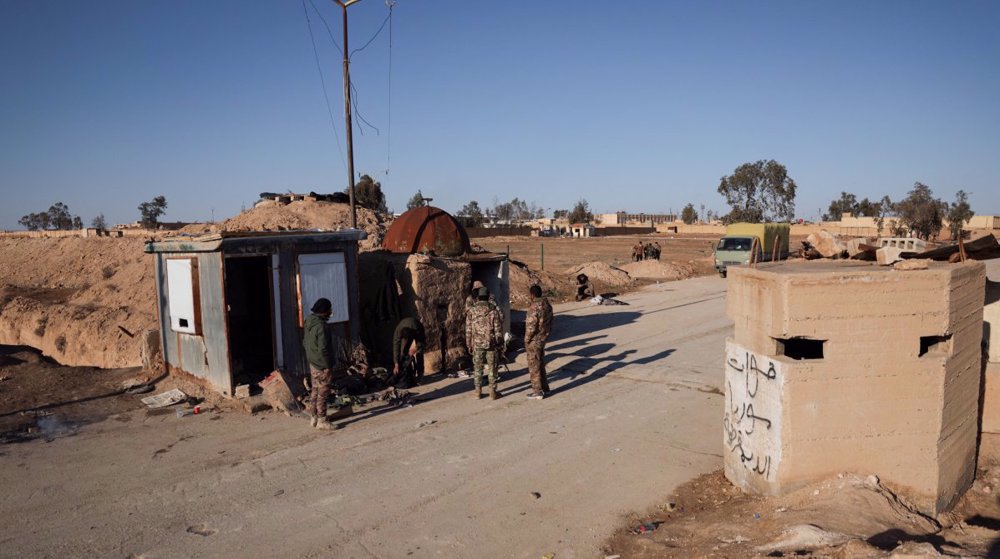
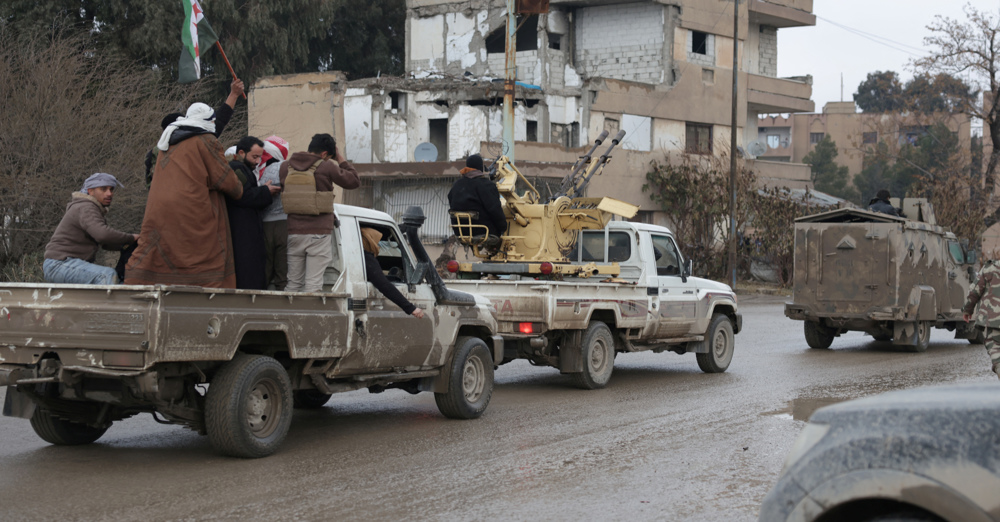



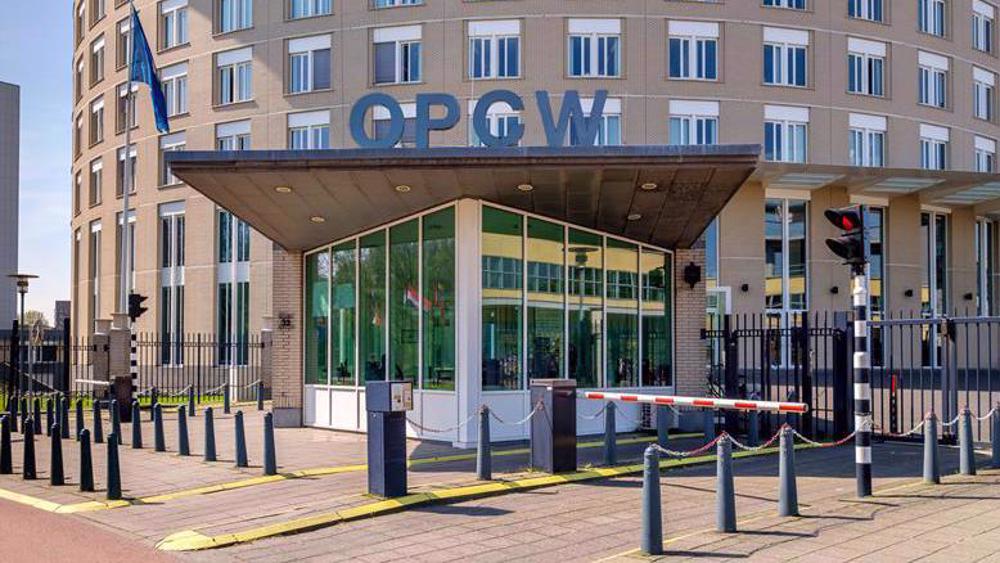
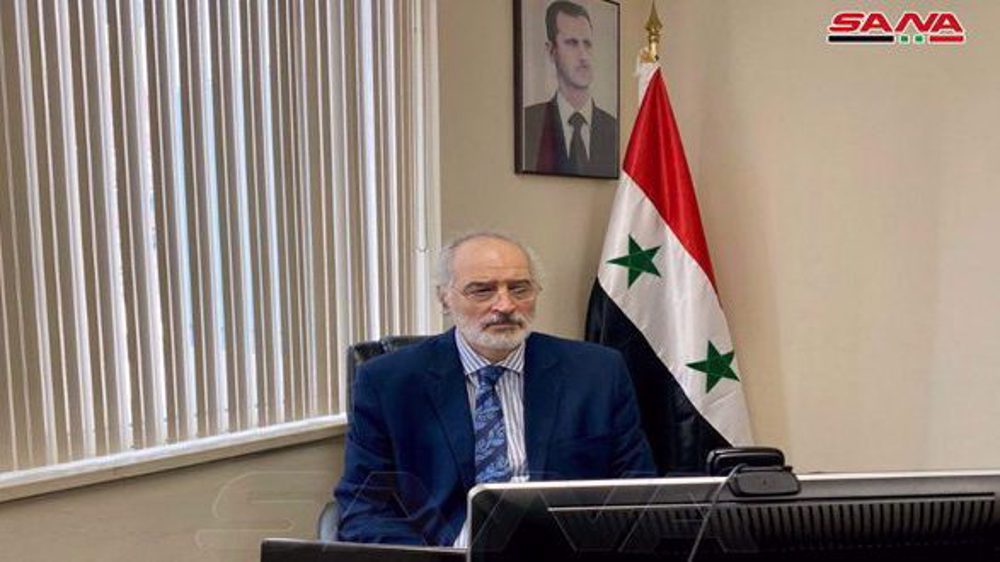
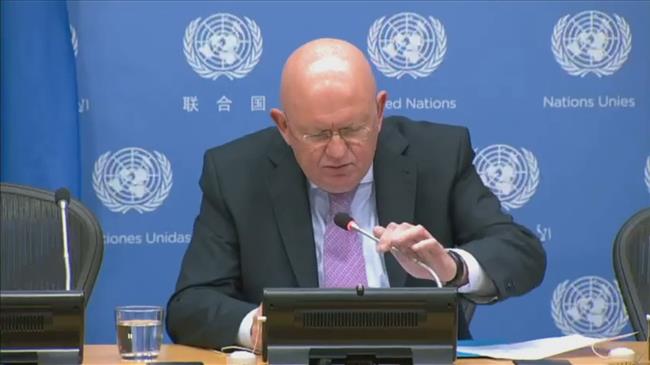
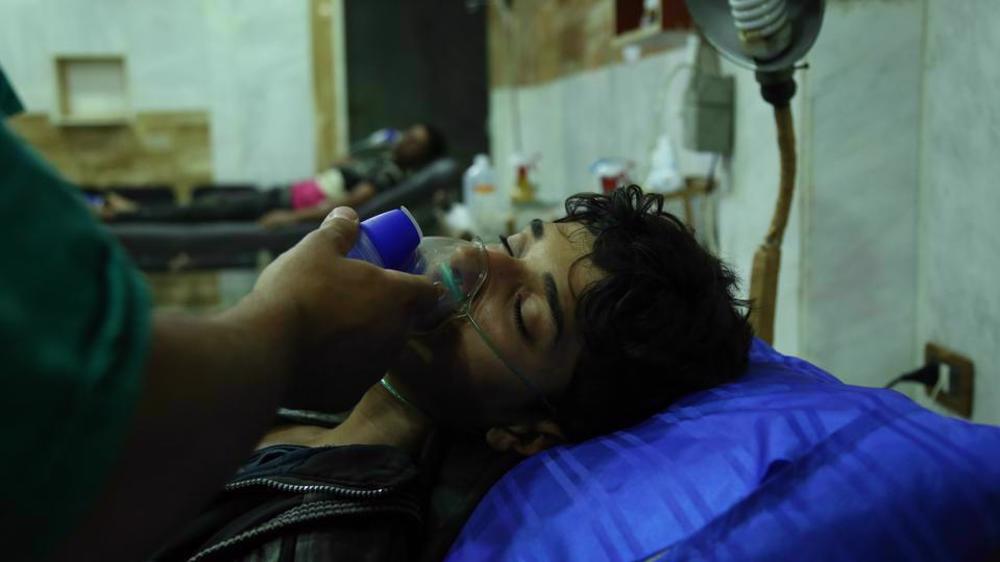
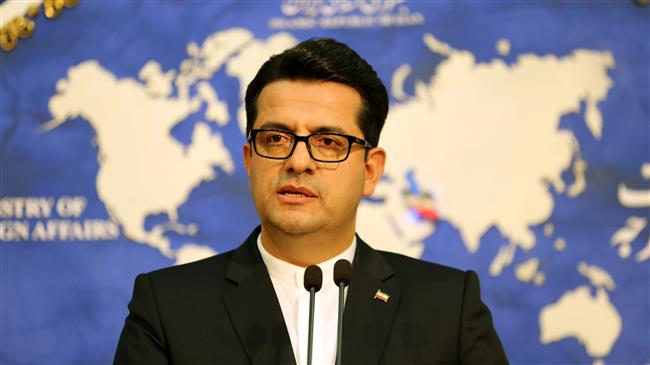
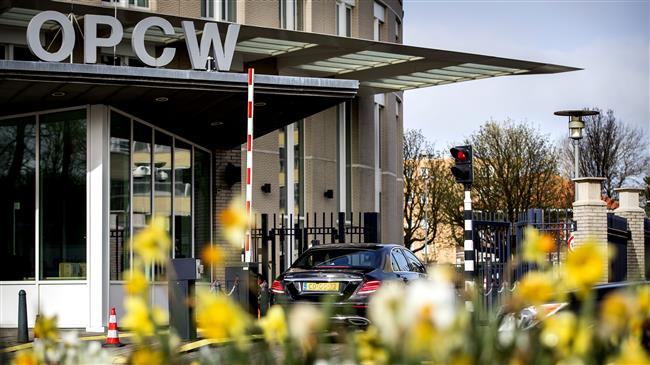

 This makes it easy to access the Press TV website
This makes it easy to access the Press TV website